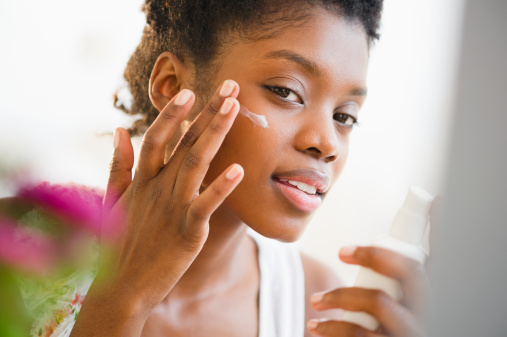Making one simple change to your diet – adding a salad almost every day – can pay off with plenty of health benefits.
Have you had your salad today? Eating salad almost every day may be one of the most healthy eating habits you can adopt — and one of the simplest, experts say.
Eating salads is a super-convenient way to work in a couple of servings of vegetables and/or fruit.
Green salads are on the menu of almost every restaurant. You can even buy a side salad (with Romaine lettuce, carrots and tomatoes, available with fat-free or reduced-calorie salad dressing) for a buck at many fast food chains these days. And you can make a green salad at home in five minutes, armed with a bag of pre-washed salad greens, a few carrots or other veggies, and a bottle of light salad dressing.
Not only that, but salads are cool, crunchy, and fun to eat (lots of textures, colors, and flavors). Most people enjoy eating salads—even kids! You can customise them to include the fruits and vegetables that appeal to you the most, and whichever ones you have on hand.
Here are other health reasons to reach for a salad today:
Eat salads for the fibre
It’s hard to believe that something we can’t even digest can be so good for us! Eating a high-fibre diet can help lower cholesterol levels and prevent constipation.
Not only that, says Barbara Rolls, PhD, author of The Volumetrics Eating Plan, eating more fibre can help you feel fuller, eat less, and ultimately lose weight.
Eat salads for the health benefits of fruits and vegetables
Many experts agree that Americans need to eat more fruits and vegetables(especially dark green and orange vegetables) and legumes — all popular salad ingredients. David Jacobs, PhD, professor of Public Health at the University of Minnesota, says in an email interview that there is plenty of evidence that nutrient-rich plant foods contribute to overall health.
If you frequently eat green salads, you’ll likely have higher blood levels of a host of powerful antioxidants (vitamin C and E, folic acid, lycopene, and alpha- and beta-carotene,) especially if your salad includes some raw vegetables. Antioxidants are substances that help protect the body from damage caused by harmful molecules called free radicals.
For years, researchers have noted a link between eating lots of fruits and vegetables and lower risks of many diseases, particularly cancer. A recent study from the National Cancer Institute suggests that people whose diets are rich in fruits and vegetables may have a lower risk of developing cancers of the head and neck — even those who smoke and drink heavily. Foods found to be particularly protective include beans and peas, string beans, peppers, tomatoes, carrots, apples, nectarines, peaches, plums, pears, and strawberries.
Salads digest easily
Do you hate that super full feeling and the bloating that happens after eating a fatty meal? Well, salads do not cause bloating and that is akin to winning the golden ticket in “Willie Wonka And The Chocolate Factory”. Salads help to fill you up, but they do not feel heavy nor do they make you feel lethargic.
Salads ward off disease
Salads help protect the body from diseases such as cancer and heart disease because they are high in fiber which improves digestive health. The raw fruits and vegetables in a salad also are antioxidants. Just add a hand full of blueberries and walnuts to a salad to up the health factor significantly. Research has also shown that people who consume plenty of raw vegetables and good fat (olive oil) have a reduced mortality! Salads will help you live longer!
PUNCH.







